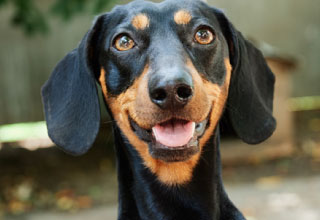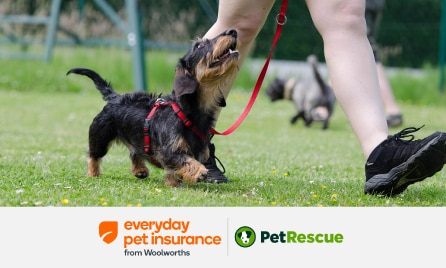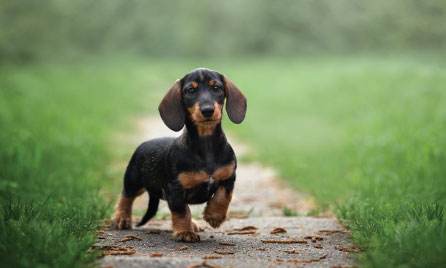- text
-
# Depending on your level of cover. Policy T&Cs, limits, exclusions, waiting periods and annual excess may apply.
Information about Dachshunds.
- Information about Dachshunds.
- Dachshund breed information.
- Should I get a Dachshund?
- Dachshund personality.
- Taking care of a Dachshund.
- Common Dachshund health conditions.
- Gastric dilatation-volvulus (GDV).
- The cost of insuring a Dachshund.
- Need Pet Insurance for your Dachshund?
- Why pick Everyday Pet Insurance?
Dachshund dogs are best-known as sausage dogs. They have a pointed snout, a pair of droopy long ears on the sides, and very short legs compared to other dogs. There are generally three varieties of them, differing mostly in the texture of their coat. They can be smooth, wirehaired, or longhaired.
Dachshunds are sweet and protective for the most part. While originally bred to be active outdoors for hunting purposes, many changes have been made to them over the years. For instance, they’re now much smaller in size, but most keep their interest for digging.
If you want to know more about the sausage dog, read our breed guide to see if Dachshunds are the pet for you.









